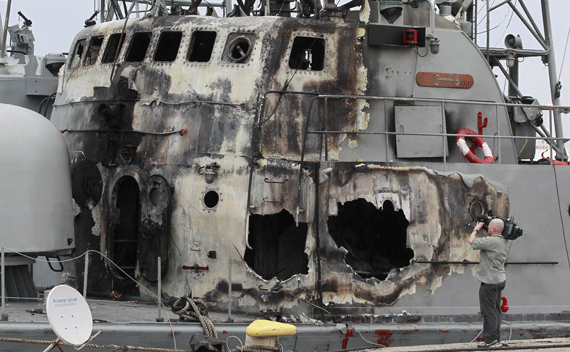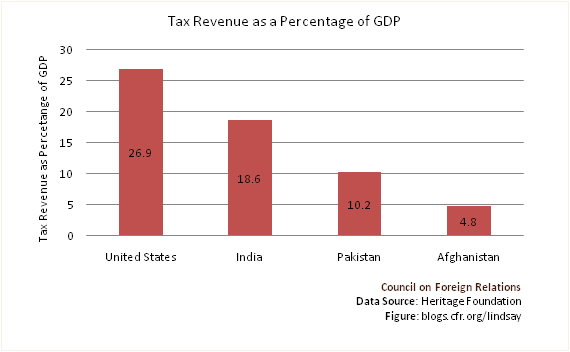Friday File: Libya Bombing Intensifies
More on:

Above the Fold. President Obama said back in March that “broadening our military mission to include regime change [in Libya] would be a mistake.” Two months later, it’s clear that regime change has become the goal. NATO intensified its airstrikes this week. Let the debate begin on the wisdom of the mission creep or whether the mission really creeped at all. In the meantime, Obama continues to resist European calls for a more vigorous U.S. air effort. His counsel appears to be to sit tight--sustained aerial bombardment will eventually force Qaddafi from power. The president is probably right, though we could be sitting tight for some time. And the longer we sit the greater the risk that domestic opposition in the United States or Europe to the bombing campaign will grow, giving Qaddafi hope that he might succeed in hanging on. But the bigger challenge is whether the United States and Europe are ready for a post-Qaddafi Libya. Iraq is a cautionary lesson that it is far easier to push out dictators than to install just and effective governments.
CFR Event of the Week. I grew up in Massachusetts, went to John F. Kennedy Elementary School, and my oldest memory is of the rider-less horse in the procession at President Kennedy’s funeral. So I am all ears when luminaries such as Frederick Kempe, Richard Reeves, and Alan Brinkley sit down to discuss President Kennedy’s foreign policy choices. Really good stuff. You can read the transcript, listen to the audio, or watch the video.
Read of the Week. The New York Times Magazine’s Robert Worth looks at Egyptians struggling to make the most of their revolution while facing a declining economy, rising crime, and continued corruption.
Blog Post of the Week Last week John Deutch challenged Joe Nye to explain the breakdown in governance in the United States. Joe has responded. As I knew he would, he nails the answer. He opens by making the critical but usually overlooked point about American politics: “It is important to put current problems in historical perspective. The founders deliberately designed American government to be inefficient with checks, balances, and delays. As the joke goes, it was designed so King George could not rule over us—nor anyone else.” In many ways the system is doing what it was designed to do—letting people air their interests, grievances, and solutions. We just don’t happen to agree as a nation on what our interests, grievances, and solutions are.
Poll Question of the Week. Americans remain unconvinced of the wisdom of U.S. military operations in Libya. The Quinnipiac University Poll just released a new survey that asked: “Do you think the U.S. is doing the right thing by using military force in Libya now, or should the U.S. not be involved in Libya now?” Only 33 percent answered “right thing,” while 57 percent said that the United States should not be involved. Two interesting things about the poll result: First, the same percentage of Democrats and Republicans (54 percent) think that the United States should not be involved. Second, Independents are the political group most opposed to the Libyan operation (59 percent). What the Quinnipiac poll doesn’t reveal is how intensely the public holds its preferences, and intensity of public opinion matters more for politics than the content of that position. Skaggs’s law applies: the squeaky wheels get the grease. The fact that Congress isn’t wrestling with the Libya question right now suggests that while the public on the whole may not like it, they also aren’t particularly concerned about it. And so far, most of the GOP presidential candidates and potential presidential candidates have attacked President Obama for doing too little rather than too much.
Chart of the Week. One way to get a quick sense of the problem that countries like Afghanistan and Pakistan face is to examine statistics on their tax revenue as a percentage of GDP. That number suggests a nation’s capacity to invest in things like basic human capital and infrastructure. It also reveals the level of commitment (or faith) a society has in its government. On that score, Afghanistan and Pakistan lag far behind not just the United States but also behind a country like India.
Too Good Not to Note. My colleague Micah Zenko launched a new blog, “Politics, Power, and Preventive Action,” and opened by handing out a report card on NATO’s Libya operation. Another colleague, Stewart Patrick, launched his new blog, “The Internationalist,” with a look at this weekend’s G-8 meeting. Liz Economy reviews Henry Kissinger’s new book, On China. Jack Goldsmith speculates that the War Powers Resolution is subtly limiting the commitment that President Obama is willing to make in Libya. Fred Kaplan reviews Bob Gates’s call for Americans to have an honest debate about defense spending. Jacob Weisberg thinks that Barack Obama is transforming from a realist into an idealist because two years ago he said no country should impose its form of government on another country and last week he said the United States was on the side of people seeking democracy in the Middle East. Nate Silver makes the case for taking Herman Cain’s presidential bid seriously.
Perils of Prediction. “Nobody can overthrow me. I have the support of 700,000 troops, all the workers, and most of the people. I have the power.” Shah of Iran, March 6, 1978. Nine months later the Shah fled into exile.
Quote to Ponder. “The most common form of human stupidity is forgetting what one is trying to do.” Friedrich Nietzsche.
A Reason to Smile. A three-day weekend.
More on:
 Online Store
Online Store
